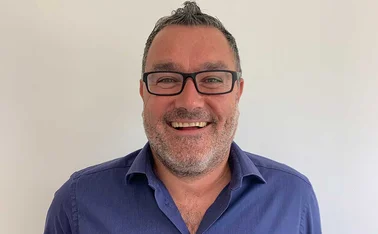
In conversation: Broker Diversity Push

Insurance Age met up with the leaders of Biba, the MGAA and Liiba for the Broker Diversity Push campaign to expand on the support and practical assistance being provided to members and widen the discussion on this crucial topic.
Last year, Insurance Age revealed that at the end of August, women held only 15.7% of approved senior management roles across the sector. The data was drawn from six key senior management functions regulated by the Financial Conduct Authority and led to the launch of the Broker Diversity Push – Gender Leadership Gap campaign.
The British Insurance Brokers’ Association, the Managing General Agents’ Association and the London & International Insurance Brokers’ Association all backed the drive of the campaign and set out their commitments to support increasing diversity in the market.
Earlier this month, new data from a Freedom of Information request by Insurance Age to the FCA showed an improvement in the shift to more gender diversity in broking leadership, although the figures remained stark.
Here the leaders (see box) expand on their previous responses and share their views on topics including whether gender diversity is an increasingly important issue among members, statistical targets, recruiting from other sectors and the impact of the next generation coming into the market.
Participants
- Biba CEO Steve White
- MGAA CEO Mike Keating
- Liiba CEO Chris Croft
Q: Is gender diversity growing in importance with members?
Steve: We have members talking about it more. On that basis, you’d say it's increasing in importance. A lot of people are aware that the regulator will be doing something in this space fairly shortly. There's a consultation paper coming.
Mike: The positive thing is it’s being talked about more. There’s a recognition that it can't be a tick box exercise but it still has some way to go.
Chris: We have 152 members, 18 of whom employ more than a hundred staff and 50% of whom employ 10 or fewer. Those are the two extremes of the community. They're both increasingly engaged. Certainly those 18 are all actively engaged in diversity inclusion programs of which gender diversity is a focus and are looking to improve the balance at senior management level and board level. Where it’s fewer than 10, people absolutely accept the principle. It's just sometimes difficult as to how you actually do something about it.
Q: What are members asking from you?
Steve: We have members that are keen to raise the issue. We have a new incoming regional chair in Manchester, Hannah Ebbitt-Ngang from Lockton, who is organising some women aimed sessions that'll be run by webinar with access around the country. This is around trying to encourage women to put themselves forward more often and we'll see what sort of take up and reaction we get.
Mike: In the last few weeks we’ve launched embedded benefits to all of our members around Diversity, Equity & Inclusion. We’ve partnered with Searchlight. It’s six sessions aimed at the C-suite of members’ businesses. We believe that if DE&I is not recognised and embraced at the top of an organisation, then it's never going to gather any traction. There are some important nuances, which you can miss [even if] you have great engagement with your DE&I policy. We’ve held our first it was nearly oversubscribed. The message I take is what we are providing is something they want. The feedback we had was absolutely fantastic.
Chris: We are not going to go and talk to Aon about their diversity and inclusion program. It’s very sophisticated and global in nature. They don’t need a six-person trade association to help them with it. But the vast majority of our members are small businesses who can't run that initiative off their own back. Our aim is to provide opportunities for them to participate in initiatives that we run centrally.
[It includes with] school children, through a charity called STEM Insights, who are all from underprivileged backgrounds.
[We also work] with the Prince’s Trust with people from underprivileged backgrounds no longer in education. It’s a two-week training course called Get Into Insurance. The Prince’s Trust had these for banking and asset management but never insurance until we created it with Howden last year. And we’re sponsoring 40 high achieving university students from under privileged backgrounds with a charity called Upreach. In their holidays they'll come in for work experience opportunities and we spread them around some of our smaller members.
Q: The FCA has rules requiring listed companies to report information and disclose against targets on the representation of women and ethnic minorities on their boards and executive management (see box). Steve mentioned the regulator’s upcoming consultation paper. How will you be responding and what are the challenges here for the broking sector?
The FCA’s ‘comply or explain’ statement targets are as follows:
- At least 40% of the board should be women.
- At least one of the senior board positions – chair, chief executive, chief financial officer or senior independent director should be a woman.
- At least one member of the board should be from an ethnic minority background excluding white ethnic groups (as set out in categories used by the Office for National Statistics).
Chris: Our message to them last time, and will be again, is that those are targets that can work well for larger firms, but when you are in a situation as half our membership are, that one member of staff is at least 10% of the workforce, they become more or less meaningless.
It's not a reflection of any lack of desire among those firms to engage as constructively as they can on the issue. It's just a practicality.
Mike: We have a community of 360 members which are different sizes. The regulator needs to be very, very careful in terms of how it frames and poses this question for small firms. As trade associations we can provide a voice and toolkits, but we can't enforce them. That’s not our role at all.
Steve: In the larger broking firms, there’s a myriad of different functions going on. You’ve got accounts, HR, comms. There are some significant heavyweight jobs that are much more diverse than sat on the board.
Chris: By a massive distance, our most ethnically diverse group is our tax working party. I think that is because British Asian communities really value a profession. They’re all accountants who have then come into insurance brokers and become tax experts. How do we instil the concept of insurance broking being a profession so that we do appeal more? That would, over the course, help ethnic diversity.
Mike: There’s data that if you have a diverse workforce, it brings different cultures and ideas to the table. The data suggests that does really energise any team.
Steve: What you’re looking for is diversity of thought and background and experience.
Q: Is there an opportunity for change with the next generation of brokers coming through?
Chris: Yes, absolutely. The initiatives we run are looking to ensure that the next generation of the market is significantly more diverse. I was on the panel of judges for our STEM course last October. I’m really enthusiastic about the prospects of the next generation. The level of intellect and input is astonishing.
I think we’re building a dynamic next generation and hopefully also an increasingly diverse one.
Mike: We’ve got a dynamic next generation group drawn from all different backgrounds and cultures. They put our own DE&I policy in place cause the association didn’t have its own. Clearly if you haven't got your own, you can't really influence your members. I couldn't be more excited about the direction of travel for our next gen team.
Steve: We have 10 regions around the country and 15 years or so ago, you’d look at those regional committees and they were very male, pale and stale. Not the case now. The age demographic is wildly different and we've got six female chairs.
I share Chris’s enthusiasm of what we see coming through. I sit on the judging panel of a number of different awards. More often than not it’s the younger category I’m judging and the quality of interest just goes up year upon year upon year, which is excellent.
Q: Is insurance recruiting from other sectors at a senior level?
Mike: If you look at some of the mainstream insurers I think we are. It comes back to what I said earlier. Draw people from different cultures with different experiences into the insurance world and they'll look at things and quite rightly, say, ‘why are we doing it this way?’ It's not just the MGAs, it’s all of our communities inviting that sort of challenge
Steve: We haven’t been collectively very good at shouting from the rooftops about what a fantastic place insurance broking is to have a career. There’s a lot of enthusiasm around the country for going out to spread the gospel. We just need to make sure that the message is a consistent and positively upbeat one.
For all the latest industry news direct to your inbox, sign up for our daily newsletter.
Only users who have a paid subscription or are part of a corporate subscription are able to print or copy content.
To access these options, along with all other subscription benefits, please contact info@insuranceage.co.uk.
You are currently unable to print this content. Please contact info@insuranceage.co.uk to find out more.
You are currently unable to copy this content. Please contact info@insuranceage.co.uk to find out more.
Copyright Infopro Digital Limited. All rights reserved.
As outlined in our terms and conditions, https://www.infopro-digital.com/terms-and-conditions/subscriptions/ (point 2.4), printing is limited to a single copy.
If you would like to purchase additional rights please email info@insuranceage.co.uk
Copyright Infopro Digital Limited. All rights reserved.
You may share this content using our article tools. As outlined in our terms and conditions, https://www.infopro-digital.com/terms-and-conditions/subscriptions/ (clause 2.4), an Authorised User may only make one copy of the materials for their own personal use. You must also comply with the restrictions in clause 2.5.
If you would like to purchase additional rights please email info@insuranceage.co.uk








